How are electives at the Faculty of Biology of Samarkand State University?
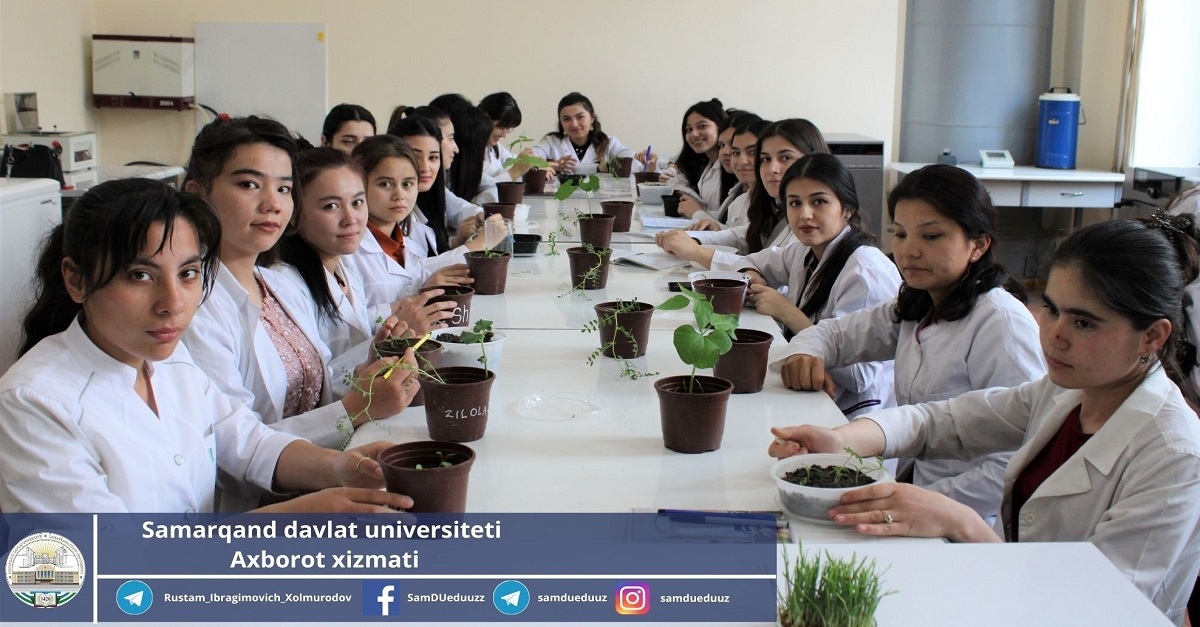
The faculty of the Department of Plant Physiology and Microbiology of Samarkand State University conducts classes on the topic "Cultivation of cultivated plants (optional)" for students of the Faculty of Biology. This science includes topics such as centers of origin of cultivated plants, systematic groups of cultivated plants, physiological characteristics, cultivation techniques and their significance.
Also, in order to consolidate the acquired knowledge in practical classes, students plant several cultural crops, study their various morphophysiological features.
In particular, cultivated plants widely used in the national economy, such as mung beans, corn, peppers, tomatoes, peas, wheat, are planted by students, taking into account various temperature, light and morphophysiological changes that occur in plants under the conditions of studying the effect of fertilizers.
It is interesting that students' interest in this science is growing, and they gain new knowledge and experience by caring for plants that they have planted with love.
- It is very important to create new, nutritious and productive species in order to solve the food problems emerging in the world today and ensure their safety, - says Abdubakir Kushbokov, teacher of the department. - Accordingly, a good study of the morphological and physiological parameters of cultivated plants is of great importance in studying the reaction of these plants to various environmental factors and growth patterns. Working with modern laboratories also plays an important role in our research with students. At the same time, Samarkand State University has created all the conditions for our ongoing research. We also work with high technology every day...
- Our optional science increases our interest every day. The reason is that theory is combined with practice,” says Zukhra Badalova, a student of the Faculty of Biology. - At the moment, we are conducting research on how to grow seedlings from seeds of cauliflower, peas, beans, and tomatoes in a modern way. We conduct research in the laboratory without going out into the field. The advantage of this is that it is easier to control factors such as air temperature, humidity and temperature.
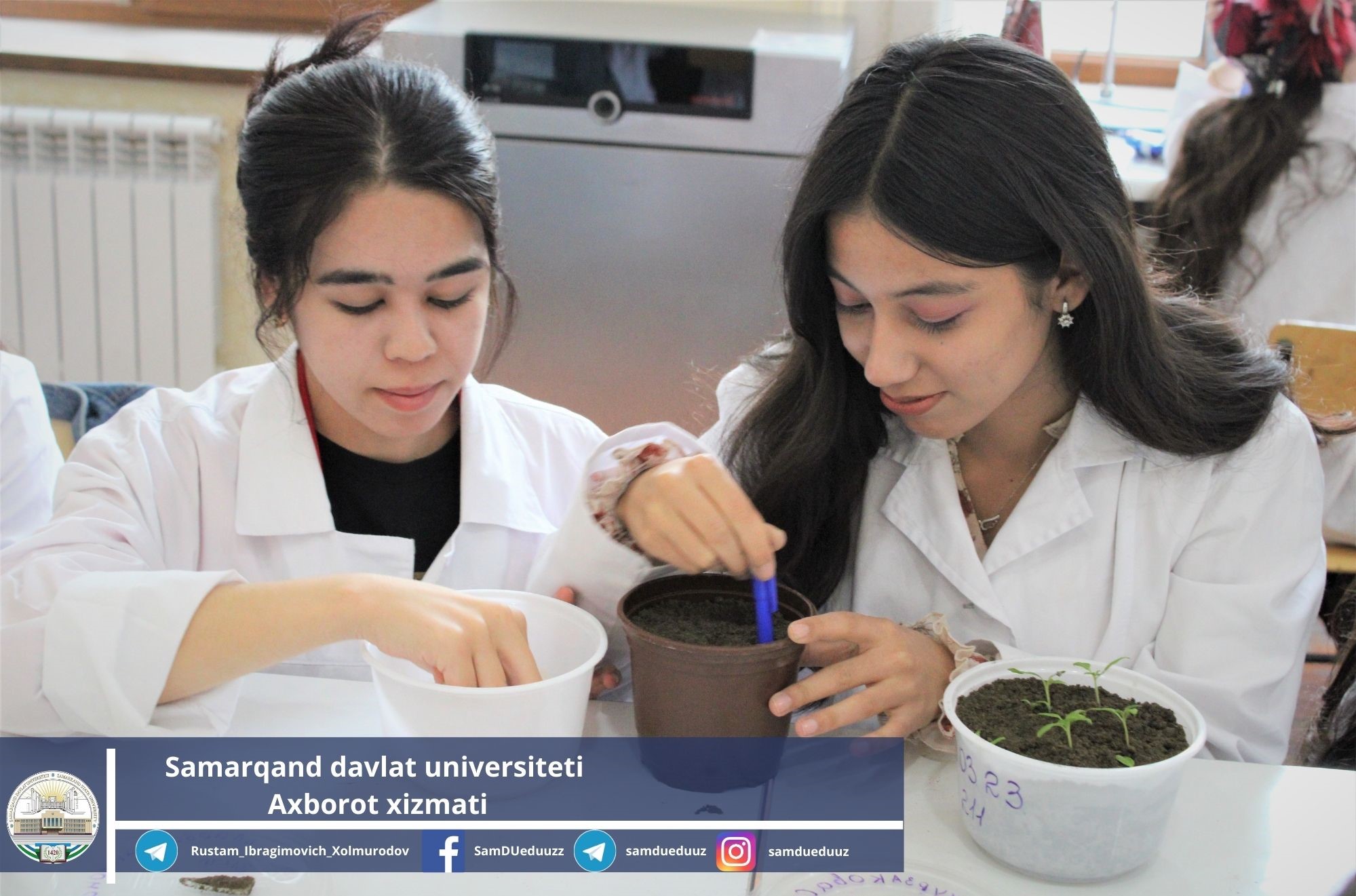
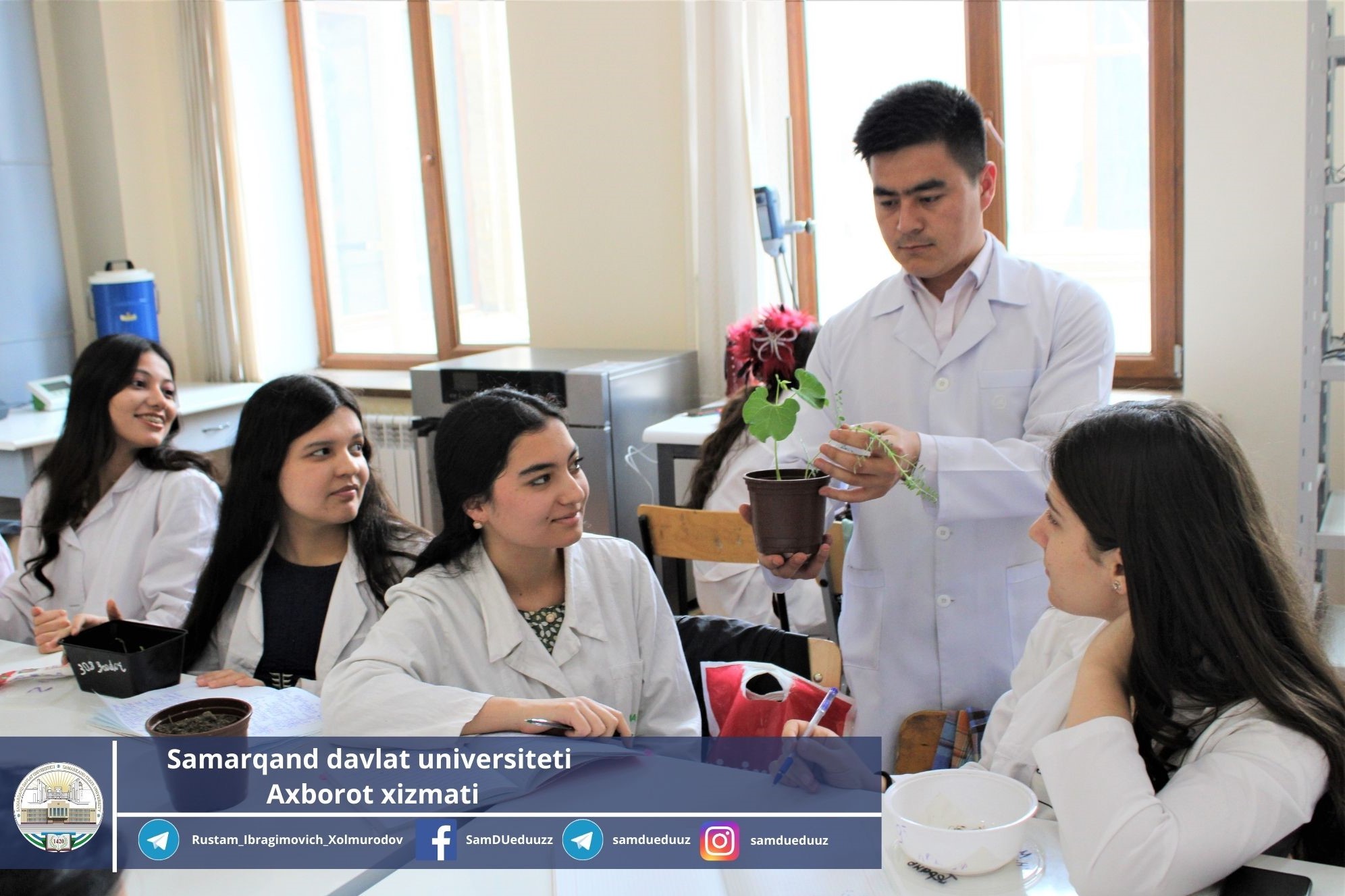
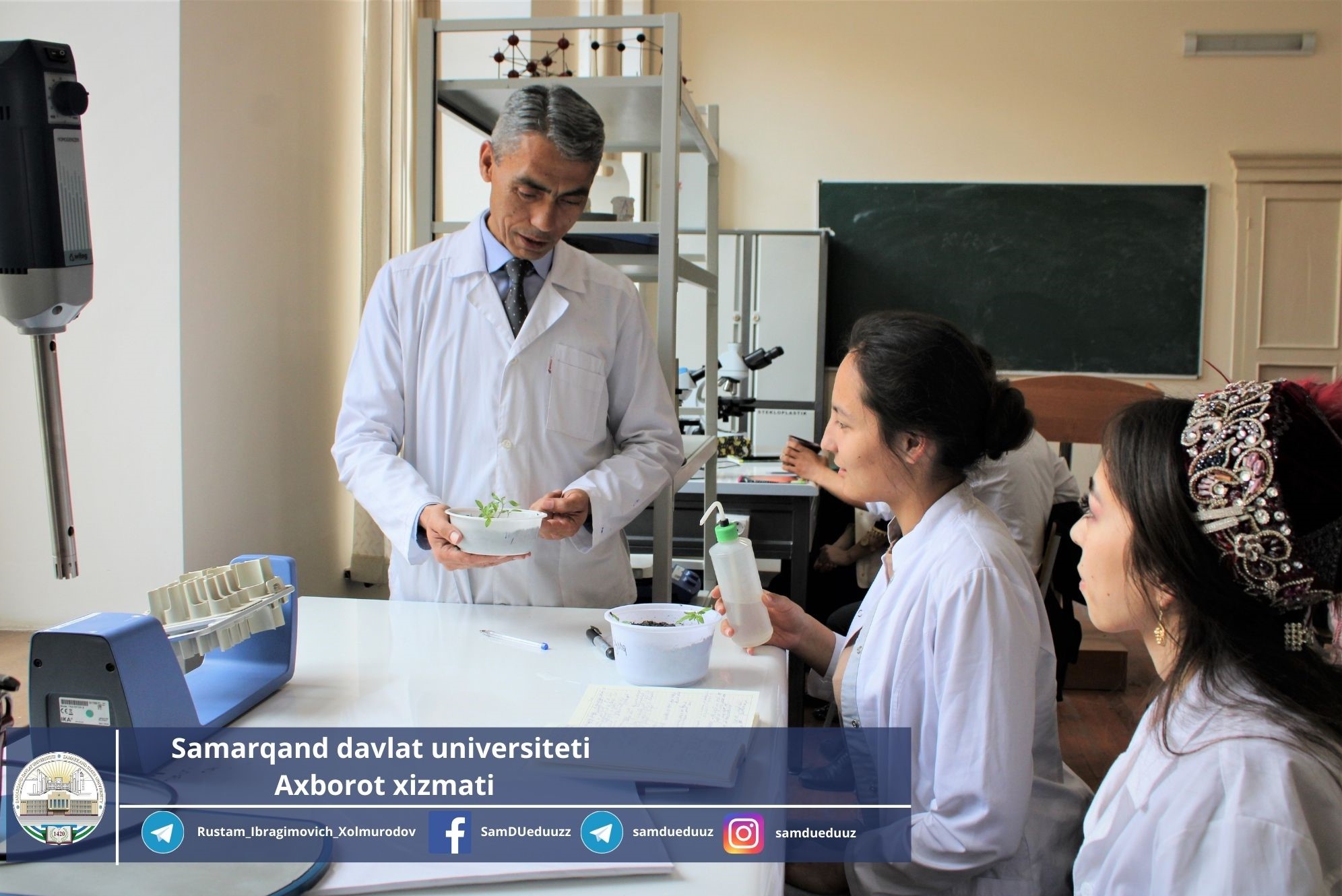
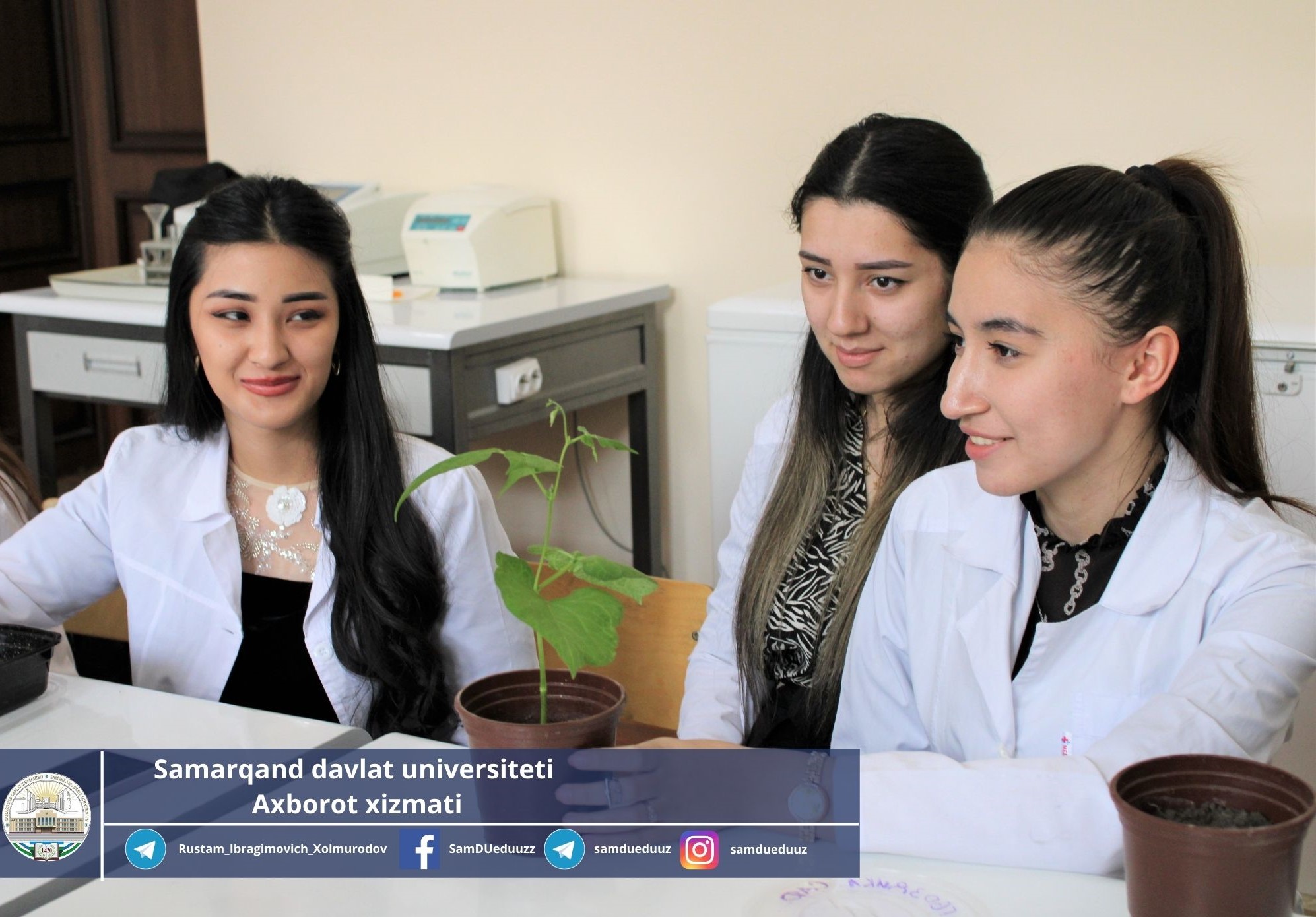
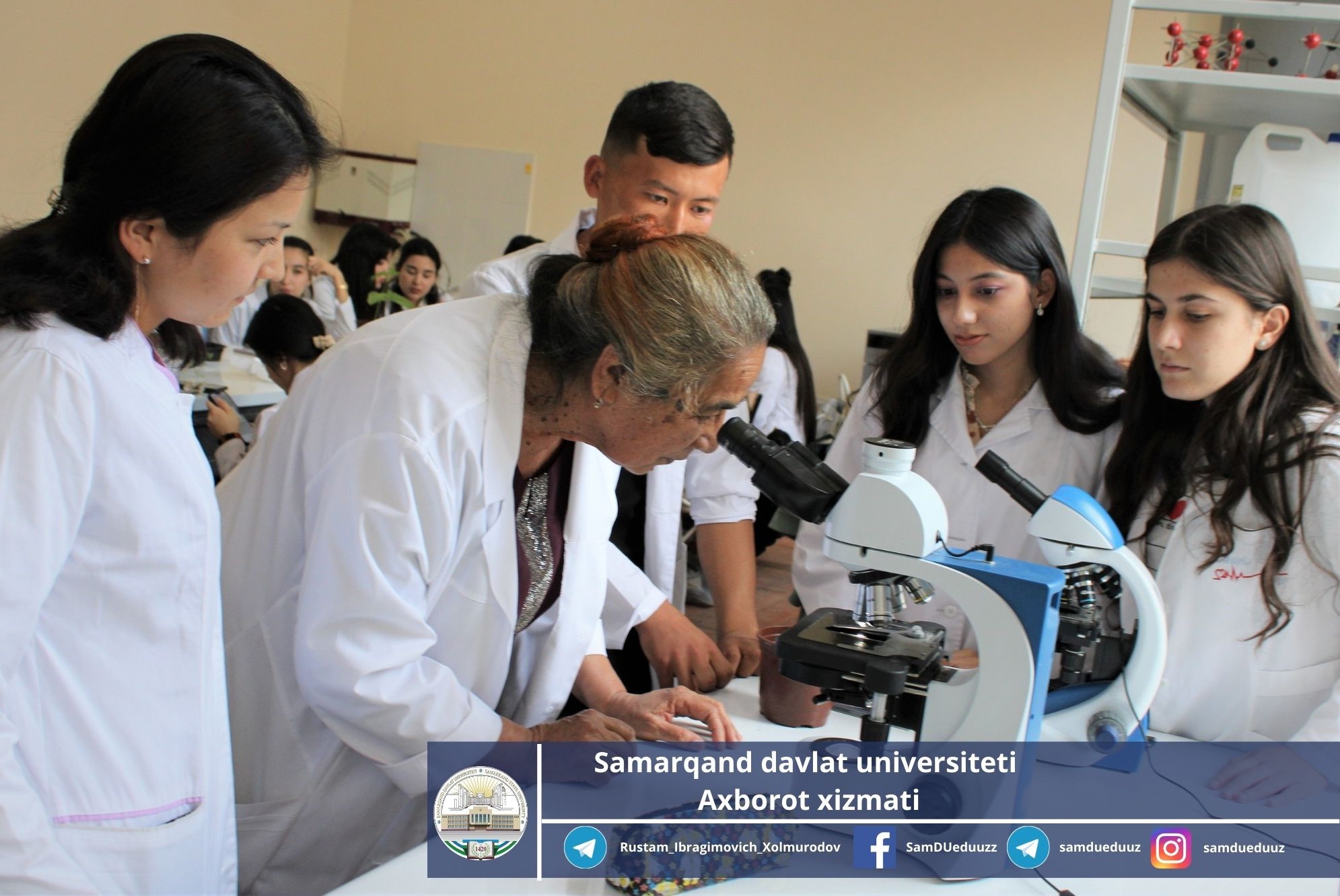
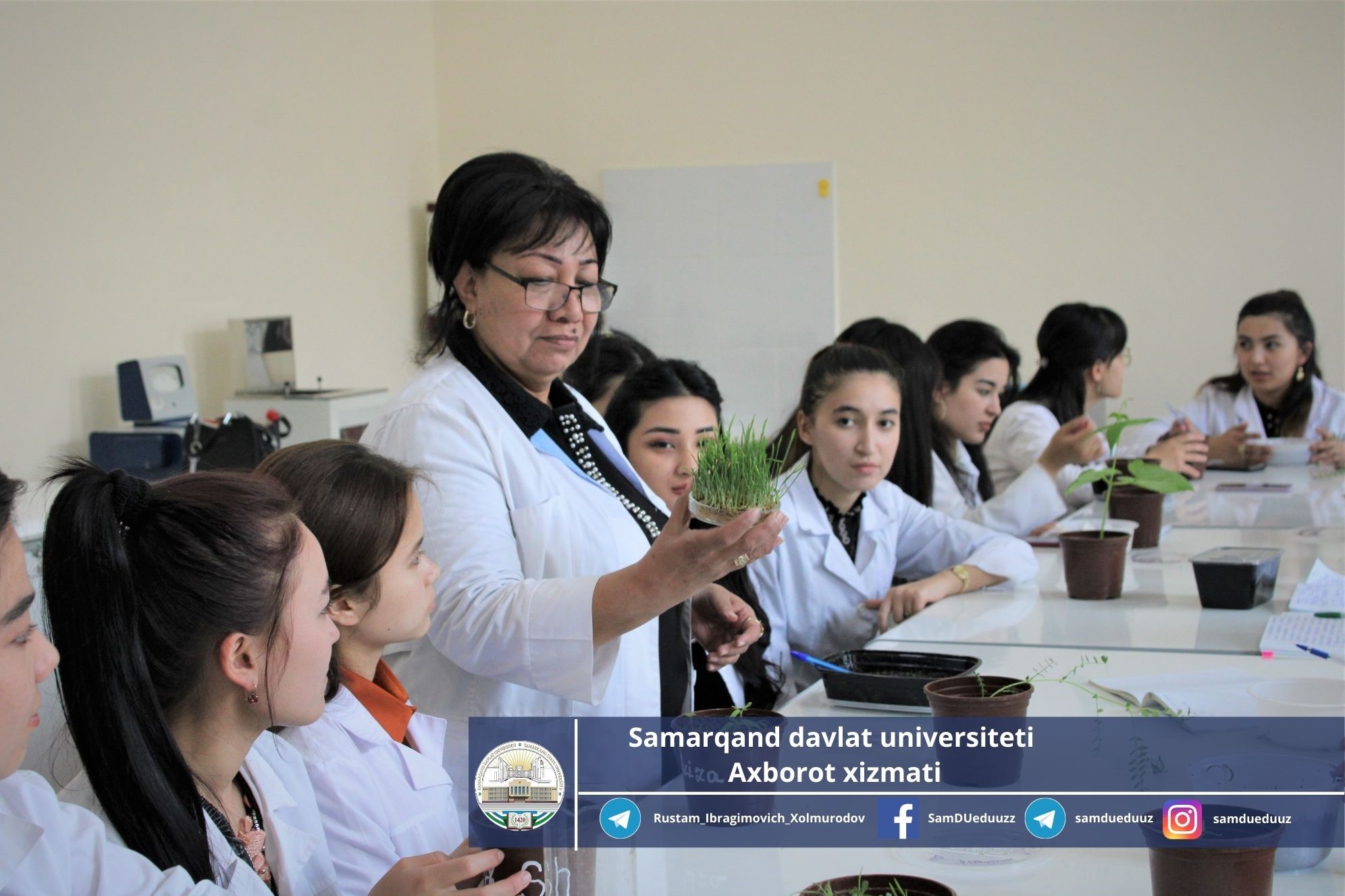
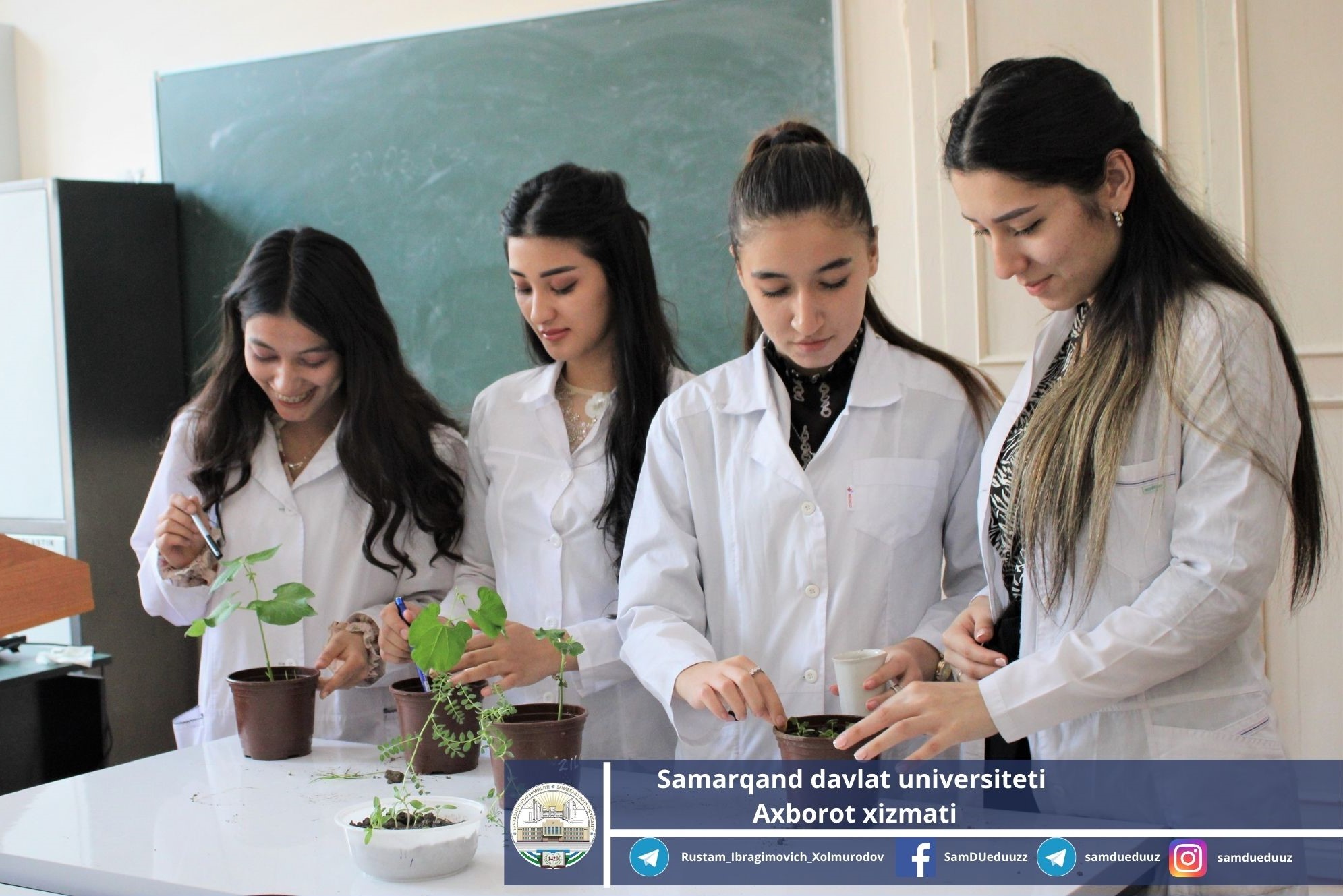
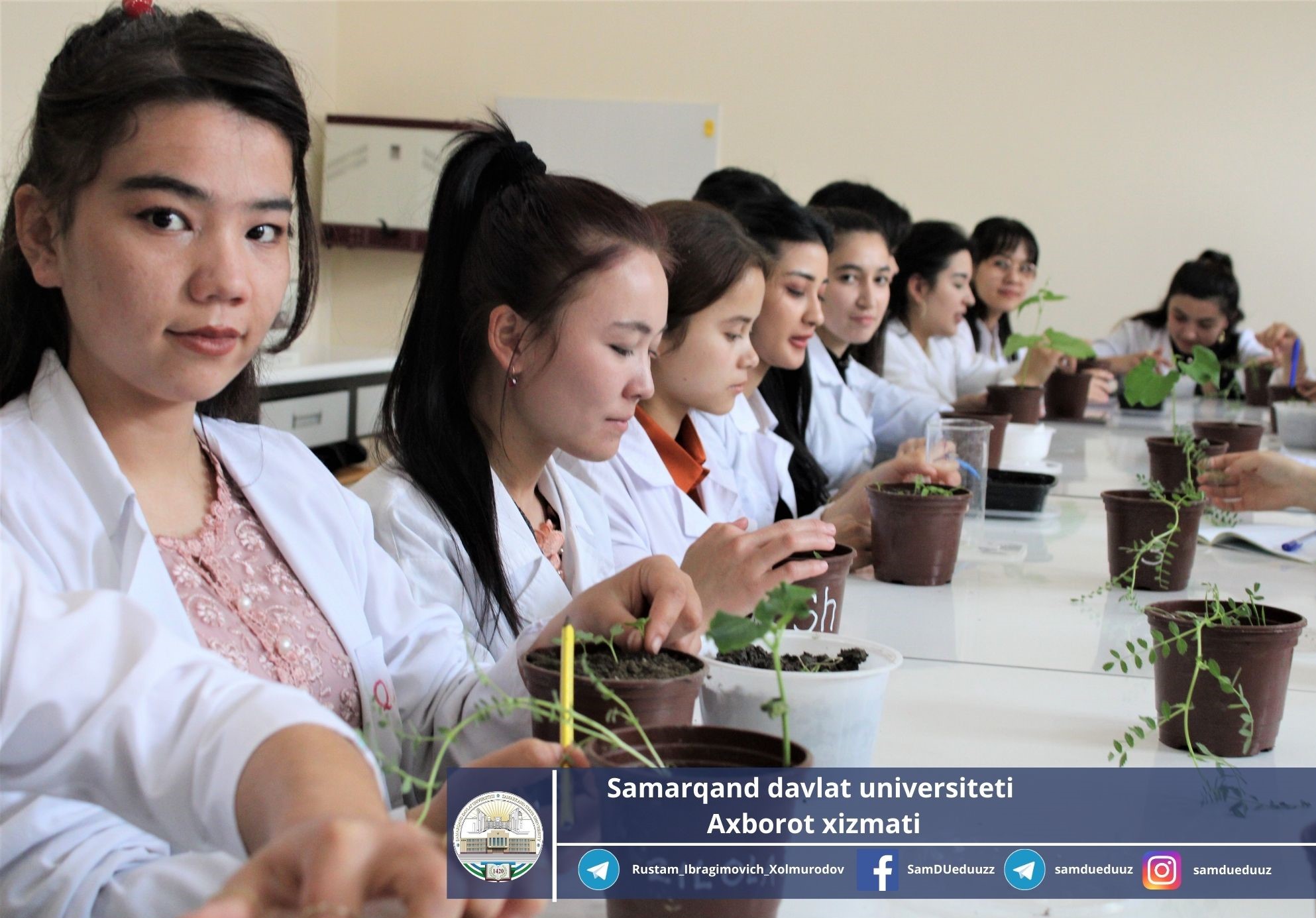
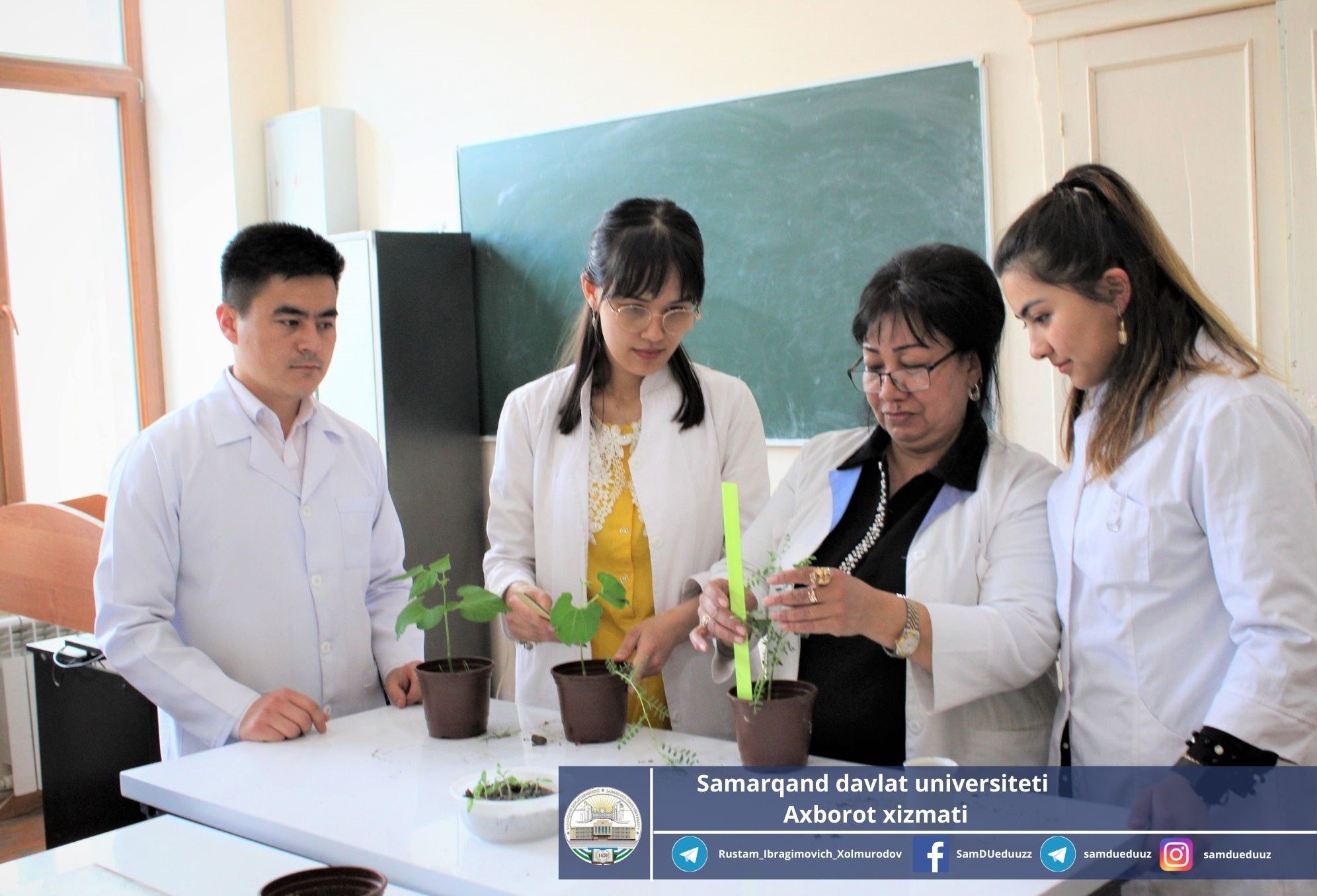
Information Service of
Samarkand State University.

